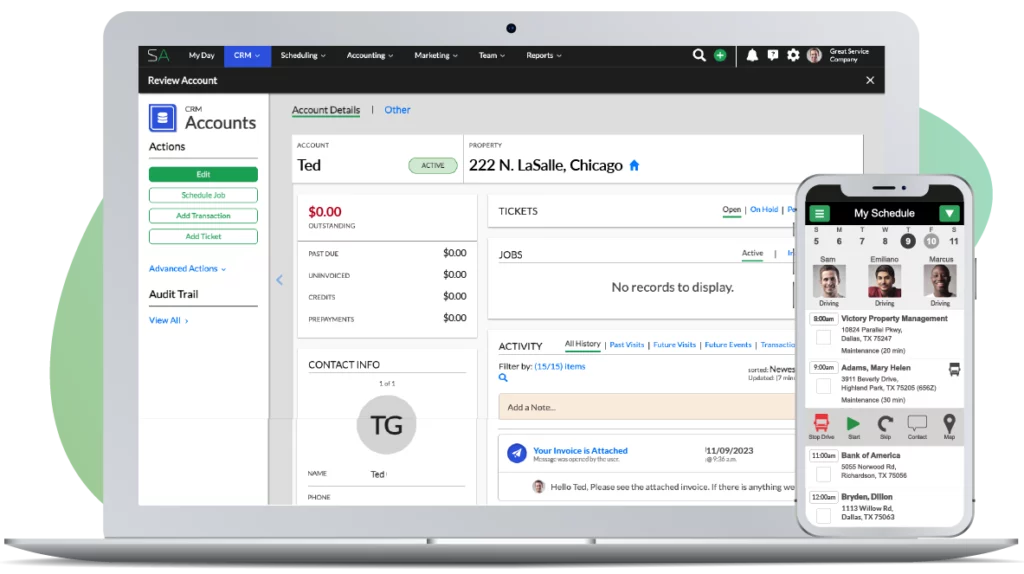Interview with Tom Delaney of Professional Landcare Network (PLANET). PLANET is the industry association serving lawn care professionals, landscape management, design/build/installation professionals, irrigation & water management and interior plantscapers.
For more information about Professional Landcare Network visit http://www.landcarenetwork.org/.
Interview Topics:
-
Labor Concerns – 03:48
-
H2B Visa – 09:48
-
Workers Requirements – 13:44
-
Pesticide & Fertilizer – 34:32
-
Concerns – 40:10
-
Water Restrictions – 51:24
Labor Concerns – 03:48
The major issue is the H2B program regarding labor and the rules the U.S. Dept. of Labor is attempting to enforce. With two lawsuits currently active, efforts are being taken to halt and prevent such rules that make it more difficult to find workers. Given the labor intensive and seasonal nature of the landscape industry, owners can be left without workers to complete work and also at risk of losing those workers with questionable paperwork, even if they follow all requirements.
H-2B Visas – 09:48
The fore mentioned concerns bring many to the H2B program which can help provide the needed workers. There are required steps to qualify such as applying in advance, advertising to American workers first and completing paperwork in an attempt to be certified for workers after approval from the U.S. Dept. of Labor. The State Dept. of Labor then sets up interviews with qualified workers before their entry into the country.
Worker Requirements – 13:44
This interview will determine entry and this process has been successful before. Proposed regulations regarding workers, can however make it difficult to consider using the program. The requirements, like wage rules requiring more pay per hour, as well as some regulations similar to those applied to the H2A program, make it costly for owners and workers alike. If the decision is made to use the H2B program, owners should be tracking proof procedures, contracts, employee and wage records to be prepared for possible Dept. of Labor audits. Having up to date files, I-9s, proof of worker’s citizenship, knowing what these proper documents look like to avoid fraudulent papers and fielding possible workers can ensure some safety during these audits.
There are kits available to help with this at http://www.landcarenetwork.org/legislative/industrytools.cfm
Pesticide & Fertilizer – 34:32
When applying pesticides and fertilizers, homeowners and commercial applicators alike must take caution in follow licensing requirements (when applying pesticides for a fee) of departs within states and also be sure to follow the label, which is the law. Without these measure both commercial applicators AND homeowners risk being cited for misuse. We have to be students of the environment and look at the resources used to take care of the landscape.
Concerns – 40:10
There are concerns about states being pushed to pass requirements that limit or ban pesticide use. We track any legislation mentioning “pesticide” or “fertilizer” and everyone should keep watch, trying to limit any restrictive requirements based on “this one person misused it, so more people must be doing the same”. If they push organic control, we try to inform people on these products and we have a document posted on our website that covers types of organic control. Organic doesn’t mean it’s safe. Maintain good management practices, using these products only when necessary and get involved and informed if you are considering working with these products.
Water Restrictions – 51:24
Restrictions vary from state to state and some states let the communities regulate water restrictions. Too often irrigation systems are improperly calibrated or not operated correctly. We need to stay informed on what we are planting and how it’s cared for, so that the minimum requirements can be met instead of the maximum. Having enough water is a serious resource issue, and this will be more of a concern in the future as time goes on, having enough water to grow the crops we need. When it comes to regulations, if you’re not speaking for your own industry, who’s speaking for you? Get involved, when it comes to all these topics discussed.



